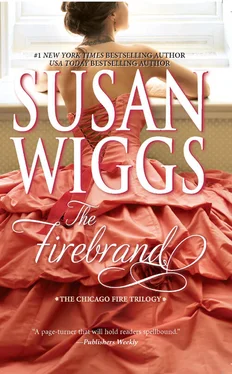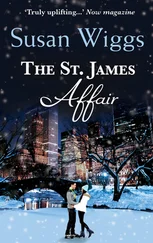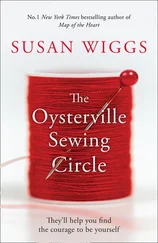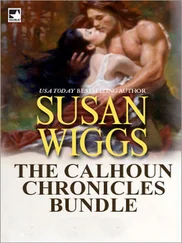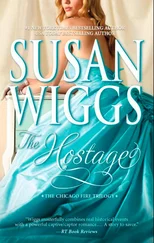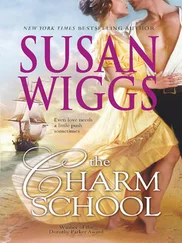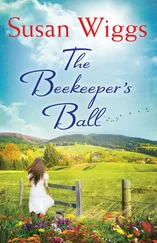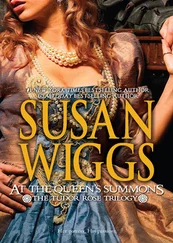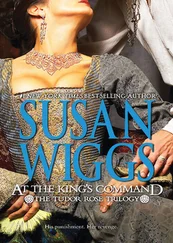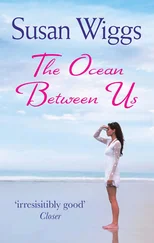Another invitation, of course. She was constantly trying to broaden his social horizons, trolling the elite gatherings of the city like fishermen trolled Lake Michigan for pike, and setting her netted catch before Rand.
The trouble was, he thought wryly, that after a while the catch began to stink. It wasn’t that he had no interest in social advancement—he knew as well as anyone that, in his business, connections mattered. It was just that he found them tedious and, deep down, hurtful.
This evening’s soiree was a reception for a popular politician, arranged by Jasper Lamott, who also happened to be on the board of the Union Trust. Lamott’s group, a conservative organization called the Brethren of Orderly Righteousness, was raising funds to oppose a bill before the legislature giving women dangerously broad rights to file suit against their own husbands. Like all decent men, Rand was alarmed by the rapid spread of the women’s suffrage movement, which was causing families to break apart all across the country. He believed women were best suited to their place as keepers of hearth and home, with men serving as providers and protectors. Perhaps he would attend the event after all. He would most certainly make a generous donation to the cause. The fact that women no longer knew or respected their place had brought him no end of trouble, and he supported those who labored to correct the situation for society in general.
Taking advantage of a rare lull in the day’s activities, he turned to the picture window, with its leaded fanlights. Resting his hands on the cool marble windowsill, he looked out.
It was a dazzling spring afternoon, the sunlight shimmering across the lake and illuminating the neatly laid-out streets of the business district. Across from the bank was a park surrounded by a handsome wrought-iron fence. In the center, a larger-than-life statue of Colonel Hiram B. Hathaway commemorated his heroism in the War Between the States. Slender poplar and maple trees lined the walkways. The green of the grass was particularly intense. Newcomers to town often commented on the deep emerald shade of the grass in the rebuilt city. Some theorized that the Great Fire of ‘71 left the soil highly fertile, so that all the new growth was surpassingly healthy.
Rand looked down at his scarred hands and felt the ache of the old unhealed injury in his shoulder.
He started to turn away from the window to neaten his desk for the next appointment when he spied something that made him pivot back and stare. Out in the street, wobbling along like a pair of circus performers, were two bicyclists. It was a common enough sight of late. Bicycles were all the rage, and recent improvements in the design had made the new models slightly less hazardous than the extreme high-wheelers. In the lead rode a black-haired woman, followed by a scruffy little boy on a child-size bicycle of his own.
They looked absurd, yet he couldn’t take his gaze away. Patently absurd. The woman’s dress was all rucked up in the middle, bloomers bared to the knees for anyone to see. The boy resembled a beggar in patched knickers and a flat cap set askew atop his curly brown hair.
Yet even so, the sight of the child struck Rand in the only soft spot left inside him. The only place the fire hadn’t burned to hard, numb scar tissue. The lad looked to be about the age Christine would have been, had she lived.
Briefly Rand shut his eyes, but the memories pursued him as they always did. The images from the past were inside him, and he could never shut them out. He was filled with bitter regrets, and they had made him a bitter man, the sort who resented the sight of a healthy young boy and an audacious woman riding bicycles.
Each morning when he woke up, he played a cruel and terrible game with himself. He imagined how old Christine would be. He imagined the little frock she would wear, and how the morning sunlight would look shining down on her bright curls. He imagined having breakfast with her; she would probably still favor graham gems with cream. And each day, before he left for the office, he would imagine the sweetness of his daughter’s kiss upon his cheek.
Then he would force himself to open his eyes and face the harsh truth.
He opened his eyes now and studied the only picture he kept in his office. Gilt cherubs framed a photograph of Christine at fourteen months of age, clutching a favorite blanket in her left hand, startled by whatever antics the photographer had performed to get her attention. As soon as the flash had gone off in the pan, Rand recalled, she’d burst into tears of fright, but the picture showed the child who had brought him the ultimate joy with the simple fact of her existence.
He pulled in an unsteady breath. There were some moments when it was hard to resist wishing he’d lingered longer with his daughter each morning, watching the play of sunlight in her wispy curls.
He glared at the outrageous woman on the bicycle, resenting her for having the one thing he could never get back.
She wobbled to a halt in front of the bank building and dismounted gracelessly, launching herself off the bicycle like a cowboy being bucked from a horse. The lad was more nimble, landing on both feet with catlike lightness.
They leaned their bicycles against the brass-headed hitch post the bank had installed for the convenience of well-heeled customers. Then the black-haired woman shook out her skirts, straightened her ridiculous hat and marched up the marble steps to the bank. Her son came, too, clinging to her gloved hand.
Rand noticed something vaguely familiar about the woman. A chill of apprehension sped through him, and something made him pick up the file his secretary had delivered, containing the papers pertinent to his next appointment. He untied the brown satin ribbon and flipped open the file.
His next appointment was with someone he hadn’t thought about in years, but whom he’d never quite forgotten: Lucy Hathaway.
What the devil was she doing, applying to him for a loan extension?
What the hell did she need a loan for, anyway?
And what was her name now that she was a wife and mother?
Some days, he thought, scowling down at Lucy Hathaway’s file, banking offered unexpected challenges.
He stood behind his desk and waited for Crowe to show her in. She arrived like a small tempest, wrinkled skirts swinging, the feather on her hat bobbing over her brow and the little boy in tow. The lad stared openly at him, then whispered, “He’s a giant, Mama, just like—”
“Hush,” she said quickly. But her manner was all business as she held out her hand. “Mr. Higgins, how do you do?”
Oh, he remembered that husky, cultured voice from their first meeting that long-ago evening. He remembered that direct, dark-eyed stare, that challenging set to her chin. He remembered how provocative he had found her, how intrigued he’d been by her unconventional ways.
He remembered that she’d asked him to be her lover. And he remembered the look on her face when she learned he was married.
As he offered her a chair, he knew he would not have to worry about her being attracted to him now, scarred and dour creature that he had become. She gave his imperfect face, camouflaged with a mustache these days, a polite but cursory glance, nothing more.
“Very well, thank you,” he said, then glanced pointedly at the boy, who boldly peered around the plain leather-and-wood office, looking like mischief waiting to happen. “And this is…?”
“My daughter, Margaret,” said Lucy.
Margaret stuck out a grubby hand. “How do you do? My friends call me Maggie.”
Rand was thoroughly confused now. She called her son Margaret? Then it struck him—the child in the rough knickers, short hair and flat bicycle cap was a little girl. He tried not to look too startled. “I’m very pleased to meet you, Maggie.”
Читать дальше
